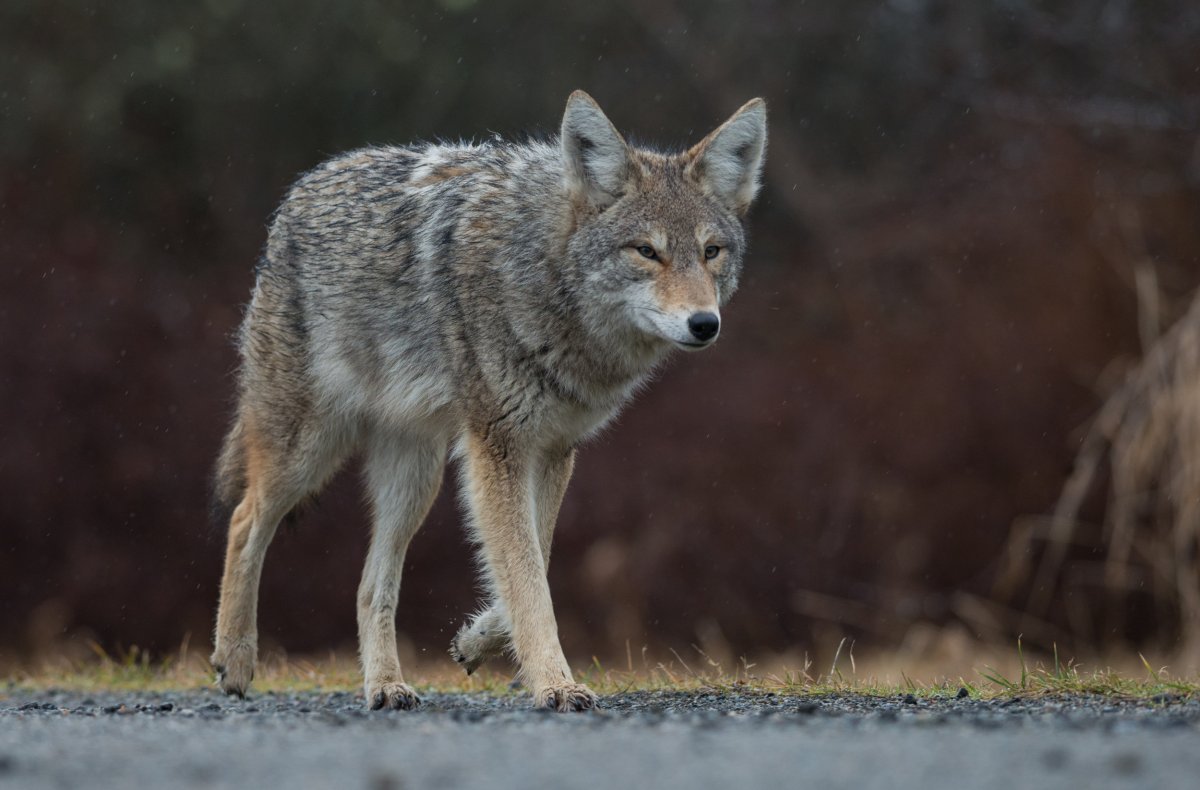Camp Lejeune, North Carolina—the largest Marine Corps Base on the east coast—has warned its personnel to stop jogging in the Wallace Creek area during nighttime after four recent attacks by coyotes.
In a public Facebook post, camp officials advised joggers to avoid the II MEF Information Group Area Command area where the attacks reportedly took place. The most recent attack occurred on September 23 at 4 a.m. local time.
According to Military.com, three Marines and a sailor were bitten on the legs by a coyote.
"[Those bitten] all received medical treatment ... including rabies post-exposure treatment, which is standard protocol," Camp Lejeune spokesman Nat Fahy told the news outlet. Fahy said it's believed the attacks all resulted from a single coyote.
Those who encounter a coyote are encouraged to call 911 or the base provost marshal office, the camp said.

The U.S. Humane Society says that food scraps, pet food and animal feces can also attract coyote to trash cans, though it's unclear if the Wallace Creek jogging trail has any trash cans.
Coyotes are native to North America, live throughout the continent and typically weigh anywhere from 15 to 44 pounds. They're rarely territorial outside of the mid-February to mid-July "denning season," a time when males hunt for food and try to frighten intruders from nearby dens where pregnant female mates and newborn pups reside.
Coyotes are largely carnivorous, but they mostly feed on deer, rabbits, birds, lizards and fish. Unlike wolves, coyotes rarely kill humans, but they have in the past.
In October 2009, two eastern coyotes, a wolf hybrid, killed a 19-year-old woman named Taylor Mitchell while she hiked alone in the Nova Scotia province of eastern Canada. In August 1981, an urban coyote killed a three-year-old girl named Kelly Keen, dragging her from where she played in her parent's front yard.
Joan Morris, a pets and wildlife columnist for The Bay Area News group, wrote that coyotes are often wary of humans, but can grow fearless of human presence, especially in urban areas. Regardless, they are still wild animals that should be respected as such, Morris said.
Humans can often scare coyotes away by standing their ground and making themselves appear threatening. Morris suggests staring the coyote down, shouting or throwing a rock at it. She also considers it dangerous to turn one's back or run away from a coyote as the creatures may confuse such actions with those of frightened, fleeing prey.
Coyotes are more often dangerous to outside housepets and livestock, causing the majority of sheep, goat, and cattle losses, according to a 2007 study on coyote predation.
Uncommon Knowledge
Newsweek is committed to challenging conventional wisdom and finding connections in the search for common ground.
Newsweek is committed to challenging conventional wisdom and finding connections in the search for common ground.
About the writer
To read how Newsweek uses AI as a newsroom tool, Click here.






